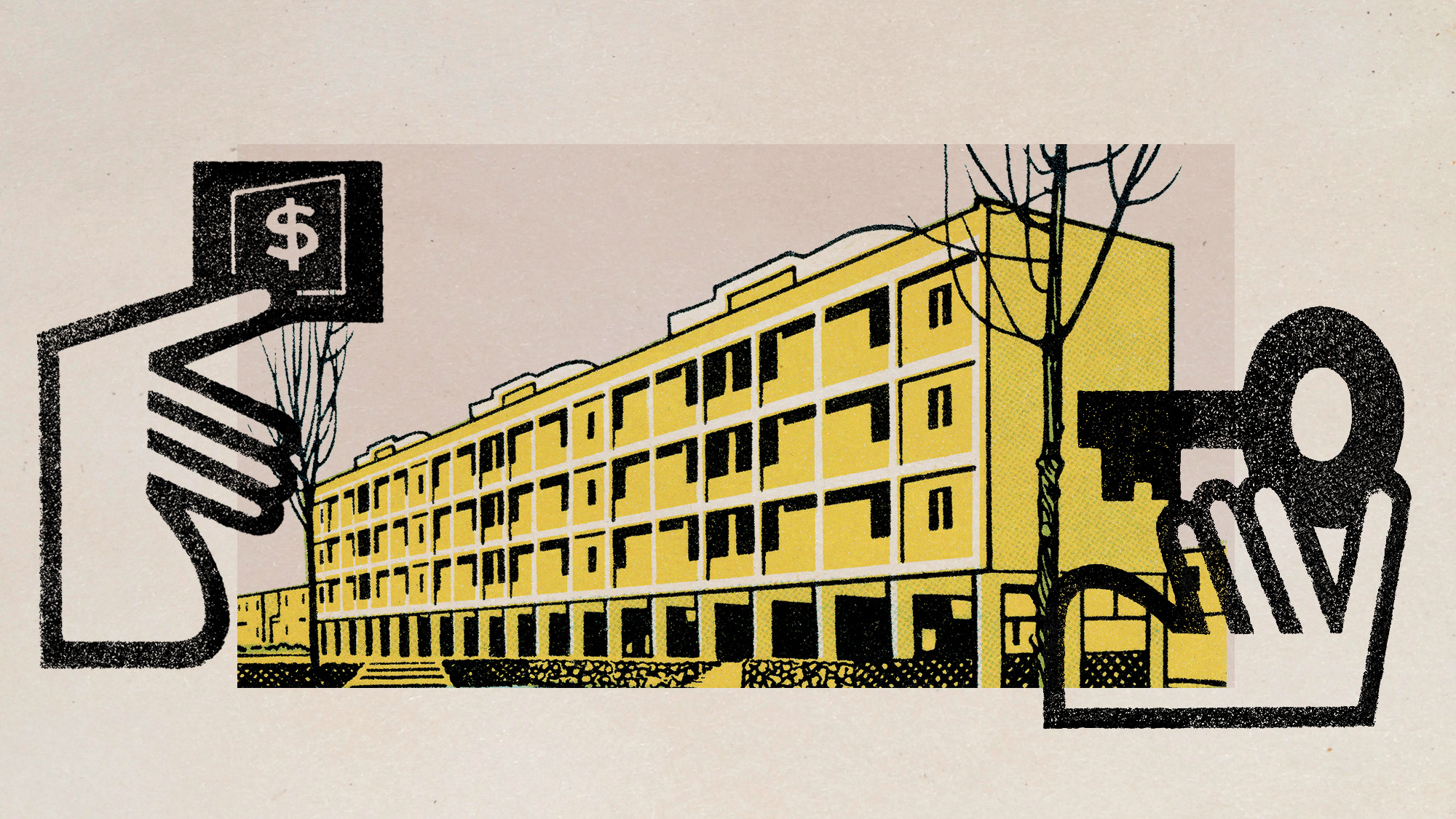When will rent prices finally come down?
Though there are signs of slowing, the rent keeps on growing


A free daily email with the biggest news stories of the day – and the best features from TheWeek.com
You are now subscribed
Your newsletter sign-up was successful
Ever since the pandemic, the cost of rent has skyrocketed, reaching burdensome highs for Americans in many parts of the country. Despite the cooldown of inflation and rate cuts by the Federal Reserve this past fall, that upward trajectory still has yet to reverse course.
As it stands now, "rent prices are 33.5% higher than they were before the pandemic," said NerdWallet. And prices are still inching upward — between October 2023 and October 2024, "rents were 3.3% higher," with increases seen year-over-year "in 48 of the 50 biggest metro areas in the country."
There may be some glimmers of hope for renters in 2025. For one, the rate of rental price growth "seems to have slowed from the major spikes of 2022," said NerdWallet. Plus, a "robust multifamily construction pipeline is expected to continue driving rental supply growth in 2025, which is likely to push the vacancy rate back toward its long-term average," said Realtor.com.
The Week
Escape your echo chamber. Get the facts behind the news, plus analysis from multiple perspectives.

Sign up for The Week's Free Newsletters
From our morning news briefing to a weekly Good News Newsletter, get the best of The Week delivered directly to your inbox.
From our morning news briefing to a weekly Good News Newsletter, get the best of The Week delivered directly to your inbox.
What are rent prices expected to do next?
"At a national level, the median asking rent price in the U.S. will likely stay flat over the course of a year in 2025, as new rental inventory becomes available," said NBC News, citing Redfin.
Indeed, said Realtor.com, "while the surge in new multifamily supply offers renters more options, the large renter population will dampen any significant impact on rental prices." This means that "if there is any decline at all in median asking rent, it is expected to be only slightly lower than in 2024 (-0.1%)."
Forecasts are not too optimistic either. For instance, "Redfin, expecting that demand will continue to outpace supply, predicts prices will rise by 4% next year, while CoreLogic, expecting that high interest rates will deter more buyers, forecasts a more modest 1.9% growth," said The New York Times.
What about notoriously expensive locations?
It really depends. Of 33 major U.S. metropolitan areas analyzed, the "following five had the biggest drops in asking rents in July [2024] compared to a year ago," said Money: Austin, Texas; Jacksonville, Fla.; San Diego; San Francisco; and Tampa, Fla.
A free daily email with the biggest news stories of the day – and the best features from TheWeek.com
Meanwhile, some metros are continuing to see rental price increases. "Among 50 metros, the following had the highest annual rent increases among all types of housing," said NerdWallet: Hartford, Conn.; Cleveland; Providence, R.I.; Louisville, Ky.; and Richmond, Va.
Why are rents still going up?
There are a number of factors at play in keeping rents elevated, particularly in certain locations. For one, there is the issue of supply, which can make a big difference in where rental prices head. As an example, in Austin, Texas, "a lot of new supply was added into the city's rental market," and as a result, "the metro area's rent prices fell by 2.9% from a year ago," said NBC News, citing stats from CoreLogic. Meanwhile, "supply-constrained metropolitan areas like Seattle, Washington, D.C. and New York City, are experiencing high rent growth of 5% annually."
The cost of buying also plays a role, keeping many people from becoming homeowners for longer. "Between July 2023 and June 2024, first-time home buyers purchased less than a quarter of the homes that sold, the lowest share since 1981," said the Times, and "the ones who did buy were older than ever, with a median age of 38."
It does not help that it is getting more expensive to build, too. "The rising costs of materials, labor, land and property insurance impact landlords just as much as they do homeowners and builders of homes for sale, making it more challenging to develop or renovate rental units while keeping rents affordable," said U.S. News & World Report.
Becca Stanek has worked as an editor and writer in the personal finance space since 2017. She previously served as a deputy editor and later a managing editor overseeing investing and savings content at LendingTree and as an editor at the financial startup SmartAsset, where she focused on retirement- and financial-adviser-related content. Before that, Becca was a staff writer at The Week, primarily contributing to Speed Reads.
